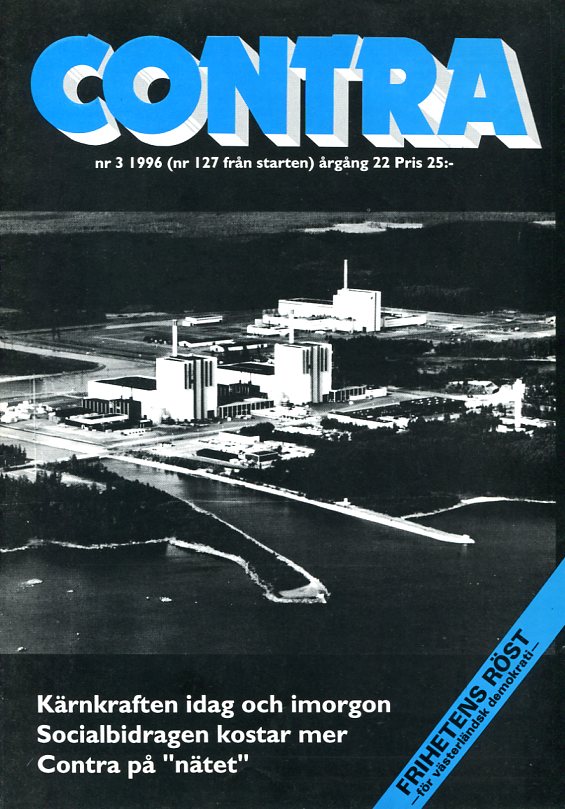
The future of nuclear power
A visit at the Forsmark nuclear power plant 100 miles north of Stockholm. According to the Swedish referendum of 1980 existing nuclear power ´plants shall be closed, when it is possible to replace them with other power sources. No new nuclear power plants shall be constructed. In the article problems of nuclear waste is discussed, no major problem, as the total volume of nuclear waste in Sweden between 1972 and 2010 could be kept within the volume of one third of the Globe sports arena in Stockholm.
Social welfare benefits doubled in five years
Cash payments from social welfare have doubled during the past five years. The reason is simple. Social welfare grants have been calculated according to “reasonable minimum standards”. This minimum is adjusted by the average inflation rate and thus increased every year. However, what people pay in rents is excluded from the cash payments (if needed rent costs are paid as an extra). Welfare recipients thus have got an increase for buying food based on the increased cost for housing. In Sweden housing costs have increased rapidly, while food costs have decreased – thanks to membership in the common market. All this taken together means that welfare recipients rapidly have increased their living standards and reached the level of average blue-collar workers. Actually 25 percent of the Swedes are now below the poverty line entitling them to cash payments – luckily for the taxpayers only 8 percent apply for cash payouts.
An additional burden for the taxpayer in the welfare system is the large number of immigrants unable to get a job and thus forced to make a living by getting welfare supprt. One half of cash payments are made to immigrants.
The heroes of the cold War
In this issue Vladimir Bukovsky’s struggle against Soviet imperialism is discussed.
Revolutionaries still on the streets of Stockholm
On May 1st old time revolutionaries were still seen on the streets of Stockholm marching for a return to bad days. Some even carried portraits of Mao or Che Guevara.
Harry Schein replies
Mr Harry Schein, the well-known banker and columnist protests against Jan Gillberg’s column in Contra number 2 1996.
Contra at the AGM of TV4
As a shareholder of the TV channel “TV4” Contra participated at the AGM and protested against the low ethical standards of the channel.
Aid as business
An aid organization called UFF is actually a part of a Danish financial empire. People that contribute with second hand clothes will see profits channeled not to aid but to running Danish schools with a leftist bias.
Guest column by Sven Rydenfelt
During the period 1870-1970 Sweden’s GNP increased more rapid than any other country in the world with the exception of Japan. Since 1970, however, Sweden has dropped back from being the number 3 most wealthy nation to rank 17. Professor Sven Rydenfelt of the University of Lund explains the cause of the decline in the economy, that government has constantly increased their part of the total production in the economy, to a much higher percentage than in other countries.

